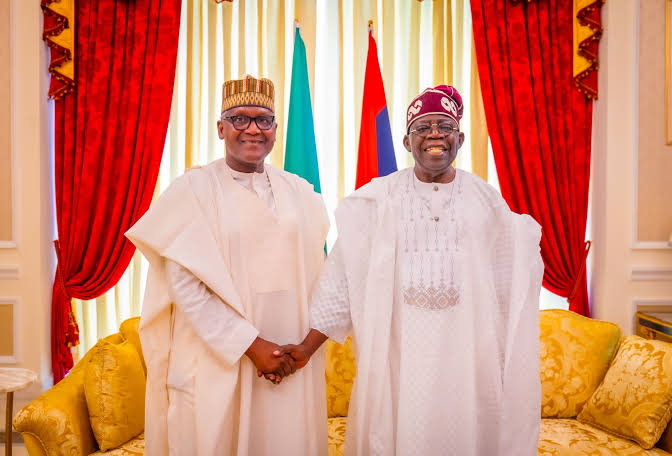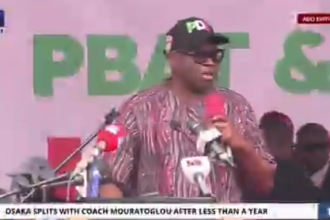President Bola Tinubu hosted billionaire industrialist Aliko Dangote for a private meeting at the State House in Abuja on Tuesday evening.
While details of the discussion remained undisclosed, the engagement underscored the Federal Government’s support for private-sector-driven growth in Nigeria’s oil and gas sector.
The meeting followed Tinubu’s June visit to the 650,000-barrel-per-day Dangote Refinery and Petrochemicals complex in Lagos, signaling ongoing collaboration between the administration and Africa’s largest industrial conglomerate.
Earlier on Tuesday, the President had addressed delegates at the West African Refined Fuel Conference through a post on his official X account. He emphasized Africa’s need to assert itself in global energy markets and break free from external pricing dependencies.
“Africa can no longer be a price taker. We must set transparent benchmarks that reflect our true value and protect our economies,” Tinubu stated. He revealed Nigeria’s push for regional energy integration, adding: “From refining to regulation and trade flows, we’re building a market that rewards production and secures energy for our people.”
Dangote, during his conference presentation titled ‘Building an African Refinery Hub: Prospects and Challenges’, identified systemic obstacles plaguing refinery development across the continent.
“Besides poor infrastructure, our biggest problem lies in rent-seeking throughout the petroleum value chain across Africa,” the industrialist asserted. He highlighted the sector’s susceptibility to entrenched corruption, noting: “When a refinery disrupts this setup, it challenges powerful forces determined to resist and maintain the status quo.”
The parallel engagements between Tinubu’s policy declarations and Dangote’s industry insights spotlight Nigeria’s dual-track approach to energy sector reform – combining government-led regional cooperation with private industrial capacity building. Analysts view the Abuja meeting as likely focused on addressing the structural barriers Dangote outlined, particularly as his refinery gears up to transform West Africa’s fuel supply dynamics.
Both leaders’ remarks reinforce a shared vision of ending Africa’s $100 billion annual expenditure on fuel imports while combating the vested interests perpetuating energy dependency.







